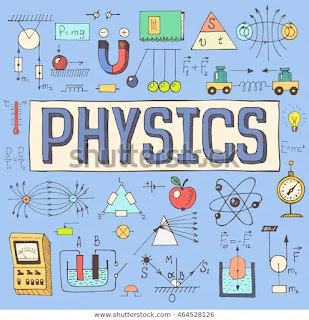The Advantages of Learning Physics
Physics is a perfect field to research at university for a wide variety of purposes. If you are thinking about university physics courses or want to combine physics with another degree subject, such as math or engineering, there are plenty of reasons why studying physics at a degree level would benefit you. For instance:
Physics is going to help inspire and challenge you academically.
A degree in physics will help you in the workplace after you have graduated, and
You could make a whole new circle of friends through your physics course.
Below are ten good reasons why studying physics at university is worthwhile, regardless of whether you intend to study the subject at Oxford or Cambridge, or elsewhere if you need some additional encouragement to study physics at university.
1. Find out why the world behaves as it does
If you're a naturally inquisitive person, then you can learn a lot from a physics degree.
There is so much that physics can teach us about, well, all of it. If you want to know why the world moves or want to understand the laws of the universe and what makes it tick-from planets and solar systems to black holes-and to show us the relation between events that we would not have seen otherwise, science will explain why things happen the way they do.
It is also an incredibly broad topic, which means that topics as diverse as particle physics, electricity and magnetism, classical mechanics, modern physics, relativity, and thermodynamics can be studied, to name a few.
Of course, when you pursue your studies, you can also choose to specialize in only a few or one of these fields, but if you enjoy researching a variety of different subjects, then physics is definitely a subject to consider!
Join IB Physics online classes and the best IB physics tutor here.
2. You want to solve issues
Core skills that an undergraduate needs to do well during a degree in physics are able to analyse a situation critically and solve problems, including theoretical problems. As such, being able to think outside the box and apply a variety of different approaches to try to solve a problem is highly valued in this area.
When it comes to your physics education, it's not only good to have and develop certain problem-solving skills, but it can also benefit you when it comes to applying for jobs after you have completed your degree.
Many employers trust applicants with good analytical abilities and a degree in physics is an ideal way to strengthen them.
3. A huge selection of career prospects
If you're curious about what kind of professions there are with a physics degree, the best answer is that there are so many to choose from!
Although a degree in physics is naturally heavily rooted in science, physics graduates do not necessarily have to go to jobs that are scientific in nature, and you certainly do not have to become a scientist or physicist if you don't want to.
Naturally, if you have your heart set on becoming an astrophysicist or a laboratory technician, you would naturally pursue those paths, but it is also important to note that there are other career opportunities out there for physics graduates.
In a variety of different industries, for example, physics graduates may find themselves working, such as:
Administration or the government sector
Finance and Enterprise; or
Technology, to name a handful.
So if you think you'd be interested in a career as an accountant, an engineer, an investment analyst, a journalist, a mathematician, or you think you'd be totally interested in another job, then it's possible that a degree in physics would help you achieve your goal, even if indirectly.
If you decide that a career in physics is something you would like to pursue, bear in mind that it might be useful to try to secure some kind of work experience in a related field to increase your chances of success.
4. This keeps you on your toes
One of the most fascinating aspects of learning about physics is that it is a constantly evolving science.
This means that you should never be bored when researching the topic, as theories that were once held in high regard are challenged and replaced with newer, more dynamic theories.
If you like the idea of constantly learning, especially with a mathematics and physics tutor, a physics degree could really suit you.
5. It complements different subjects, such as mathematics
Physics is intrinsically connected with other subjects, and one of the most noticeable relations is mathematics.
It would simply not work for physics without mathematics, as mathematics is needed to help solve the formula and generally understand and interpret physics experiments and studies.
As a consequence, any student interested in mathematics might very easily decide to take up studies in physics at university, and vice versa. There are also joint degree courses in mathematics and physics available at some universities, acknowledging the strong and enduring relationship these two subjects have with each other.
Due to the close connexion between mathematics and physics, it is also necessary for any undergraduate physics student to ensure that their knowledge of both mathematics and physics is up to scratch.
If you need any extracurricular assistance in mathematics and science, then it would be worth knowing how to find a physics and math tutor and how much it costs for a physics and math tutor.
6. It offers you a challenge.
A basic topic is not known to be physics. Physics, like other sciences, has a reputation for requiring special skills, such as: Whether you study physics at GCSE or A-Level at college or study physics at college and beyond,
Strong prowess in math;
The desire for complex formulas to be mastered; and
The capacity to consider and appreciate new ideas and concepts.
So, if you want to study a subject at a university that offers a challenge and keeps you interested, then physics might just be the degree path for you, especially if you enjoy the mathematical side of the subject, such as solving equations or performing algebra or calculus.
7. You Should Operate Overseas
If you would like to get a degree that enables you to travel and work abroad for an extended time, then physics is a great degree to consider.
For instance, when pursuing a physics degree, you could be able to land yourself an internship or work experience placement overseas. Similarly, after you have graduated, you may apply for employment in other English-speaking nations, such as America.
Physics graduates who want to be based in the U.K., even though traveling isn't for you. As highlighted above, there are still plenty of work opportunities open.
8. Acquire skills of interest to employers
You learn so much during your physics degree, including a variety of transferable skills, such as:
Problem-solving and competencies in logic;
Analysis Competencies; and
Communication and presentation capacity.
These transferable skills are also particularly attractive to employers in a number of different industries, meaning that you can support the C.V. You should stand out from the rest of the crowd when you have a physics degree to your credit.
What's more, physics is currently in high demand in several fields, including teaching. Owing to the lack of qualified physics instructors, the government offers financial incentives to graduates, such as physics graduates, in order to help bring more physics graduates into the classroom as instructors.
9. Begin to understand Modern Technologies
It's not all that shocking to know that much of what we take for granted in today's digitally-driven era has been built and is in use thanks to physics. For instance , consider only a few of the items we use on a regular basis below:
Notebooks and computers;
Digital cameras;
Mobile phones; and
Games on DVDs and MP3 players
If you're interested in technology and learning how things work, then knowing more about physics will help you understand why the modern world and the machines that occupy it work as it does today.
10. Adopt prospects for postgraduate studies
If you enjoy studying and think that you would like to stay at university longer after you have finished your physics undergraduate degree, then you will be glad to hear that there are plenty of postgraduate opportunities available at universities across the UK. For physics graduates.
If you want to pursue a master's degree in a more applied field, such as astrophysics, cosmology, theoretical physics, or quantum mechanics, or you're even considering a Ph.D., having an undergraduate degree in physics would certainly help get you there.
Even if you want to move away from physics and research another subject for your master's, such as finance, then you should still be able to explore those avenues. If in doubt, contact your university's career counselor for further feedback specific to your own situation and your academic goals.
You might even have a long talk with your physics and math teacher on the subject ... He would know more than anyone about those possibilities!



Comments
Post a Comment